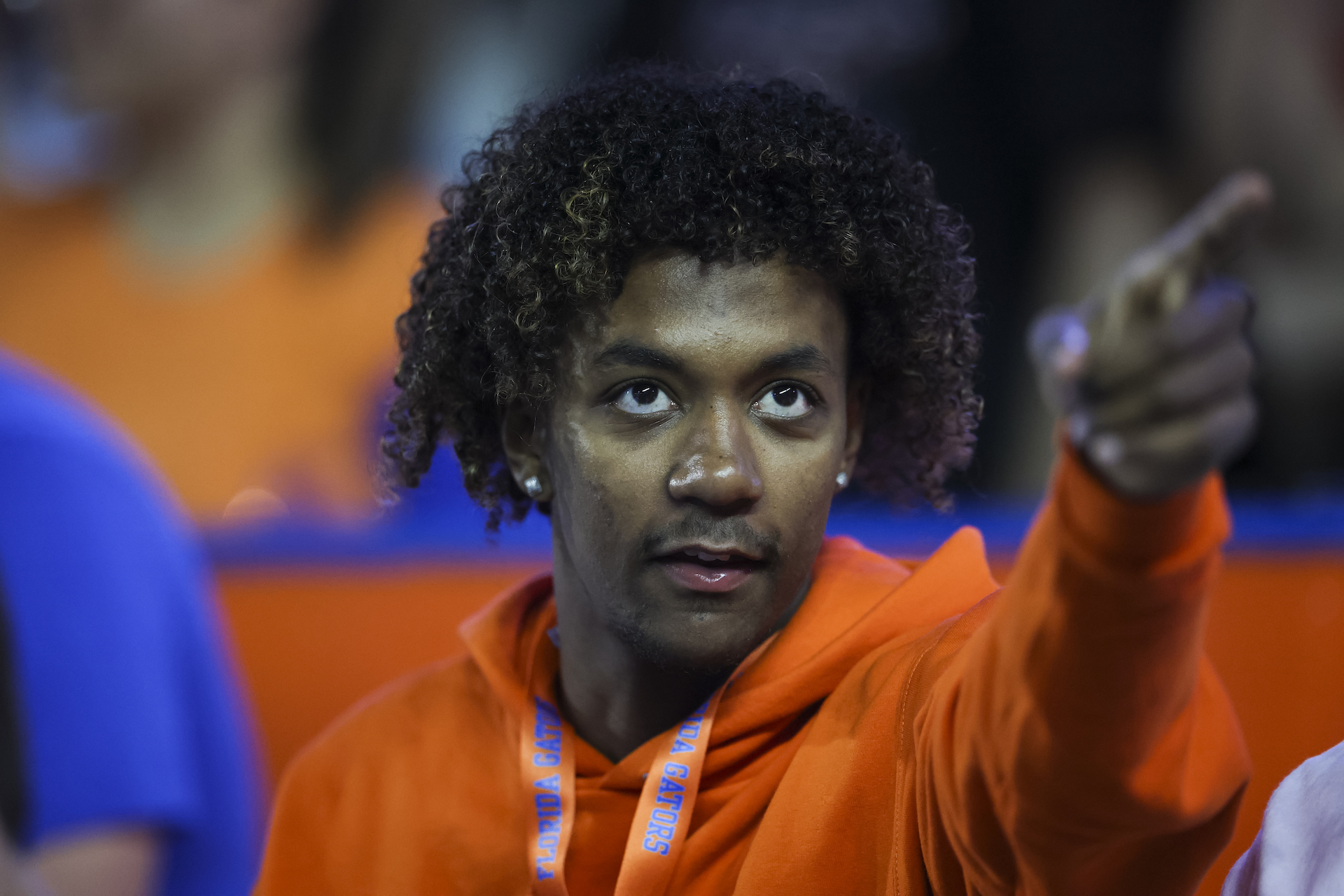Georgia transfer QB Jaden Rashada filed a lawsuit in federal court Tuesday against Florida coach Billy Napier, former Florida football staffer Marcus Castro-Walker, and top Gator booster Hugh Hathcock over a failed name, image, and likeness deal that was set to pay the quarterback $13.85 million. Of all the lawsuits that have swamped college football in the NIL era, this one might be the most embarrassing for the sport.
The complaint, which can be read in full at the bottom of this post, alleges that Hathcock, with the assistance of Napier and Castro-Walker, knowingly committed fraud in inducing Rashada, who at the time was a highly sought after recruit who had already agreed to a $9.5 million NIL deal with the University of Miami, to commit to Florida. According to the suit, the three men representing Florida promised Rashada a $13.85 million NIL that they were never going to be able to pay.
The case stems from the recruitment of Rashada in the summer of 2022. Rashada had initially pledged to attend Miami after the school promised him $9.5 million in NIL money. The lawsuit claims that Hathcock, owner of Velocity Automotive, along with Florida employees nevertheless continued in their pursuit of the highly rated prospect. The lawsuit alleges that Hathcock and Castro-Walker offered him a $13.85 million deal, with $5.35 million and a $500,000 signing bonus coming from Velocity Automotive, and the rest coming from Gator Guard, the NIL collective that Hathcock started for the university. There was also a job for Rashada's father promised in the deal. These terms ultimately changed due to Hathcock's plans to sell Velocity Automotive. Instead, he and Castro-Walker proposed money coming directly from Hathcock himself, as well as Florida's other NIL collective, the Gator Collective. According to the lawsuit, the Gator Collective CEO Eddie Rojas played into this alleged fraud, texting Rashada empty promises about the deal. The deal was signed on Nov. 10, 2022 with a $500,000 payment scheduled to come on Dec. 5.
But instead of that $500,000, the Gator Collective sent Rashada a termination letter for the $13.85 million deal. The lawsuit claims that following this letter being sent, Napier and Castro-Walker went to great lengths to convince Rashada that the school planned to make good on their promise even without the contract, convincing Rashada and his representatives that Hathcock, "through the Gator Guard, would personally guarantee the $13.85 million himself." On the first day of the early signing period, Dec. 21, the lawsuit alleges that Napier personally told Rashada that the Florida alumni would make good on their promise and that he would receive $1 million if he signed with Florida on National Signing Day. Included in the suit is a text between Rashada and his reps that reads, "Coach Napier said [Hathcock's] on a plane and that he will wire 1 Mil. He wants the paper work and I'm sending it if you are good." The lawsuit further alleges that Castro-Walker told Rashada that if he did not sign, Napier might pull his scholarship offer.
Less than a month later, with no money given, Rashada asked for a release from his letter of intent with Florida and ultimately landed at Arizona State, with no promises of NIL money. In fact, the only person to see any money out of this is John Ruiz, a prominent Miami booster who had to be paid $150,000 to get Rashada out of his initial NIL deal, presumably to avoid any litigation. Rashada made the decision to transfer to Georgia over the spring, further making this case unique as it now sees an active SEC player suing a rival coach.
In an interview with CBS Sports, Rashada's lawyer Rusty Hardin said, "The collective never had the money and yet they were making all of these promises to the kid. You dangle life-changing, generation-changing money in front of a 19-year-old kid, who grew up without it, you can't expect that young person to not be affected by it. The bargaining power is totally unequal here." He further added that Napier should never have made the promises he did, as at the time doing so was against NCAA rules. "That's not a role he should have been involved in, he shouldn't have made those promises and he should have stayed out of that whole area," he said. "He didn't."
Overall, the case reiterates just how much of a mess the NIL gold rush has proven to be. Complaints about the current NIL system often come from the institutional side, in the form of administrators and coaches complaining about players greedily chasing NIL money through the transfer portal every year, but what's alleged in Rashada's suit is an example of how the already-exploited players still suffer. In place of collective bargaining and employment contracts are shady, slapped-together deals in which millions of dollars can be promised over nothing more than a handshake. A lawsuit like this was just a matter of time.






